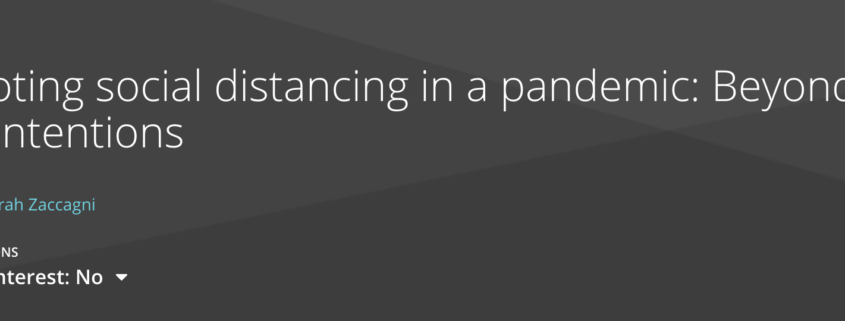Promoting Social Distancing in a Pandemic: Beyond the Good Intentions
Reminders to promote social distancing have been ubiquitous throughout the COVID-19 crisis, but little is known about their effectiveness. Existing studies find positive impacts on intentions to comply, but no evidence exists of actual behavioural change.
The authors conducted a randomized controlled trial with a large representative sample of Danish residents who received different versions of a reminder to stay home as much as possible at the height of the crisis.
They found that the reminder significantly increases people’s intentions to stay home when it emphasises the consequences of non-compliance for the respondent or his/her family, while it has not impact when the emphasis is on other people or the country as a whole. Changes in intentions, however, translate into weaker changes in actions that are not statistically significant.
This is consistent with the existence of important intention-to-action gaps. Only people who are in relatively poor health are significantly more likely to stay home after receiving the reminder with an emphasis on personal and family risks. This shows that while reminders may be useful to protect groups at risk by increasing their own compliance with social distancing, such a tool is unable to change the behavior of those who face limited personal risks but could spread the disease.
Source: Promoting Social Distancing in a Pandemic: Beyond the Good Intentions
Views 919





